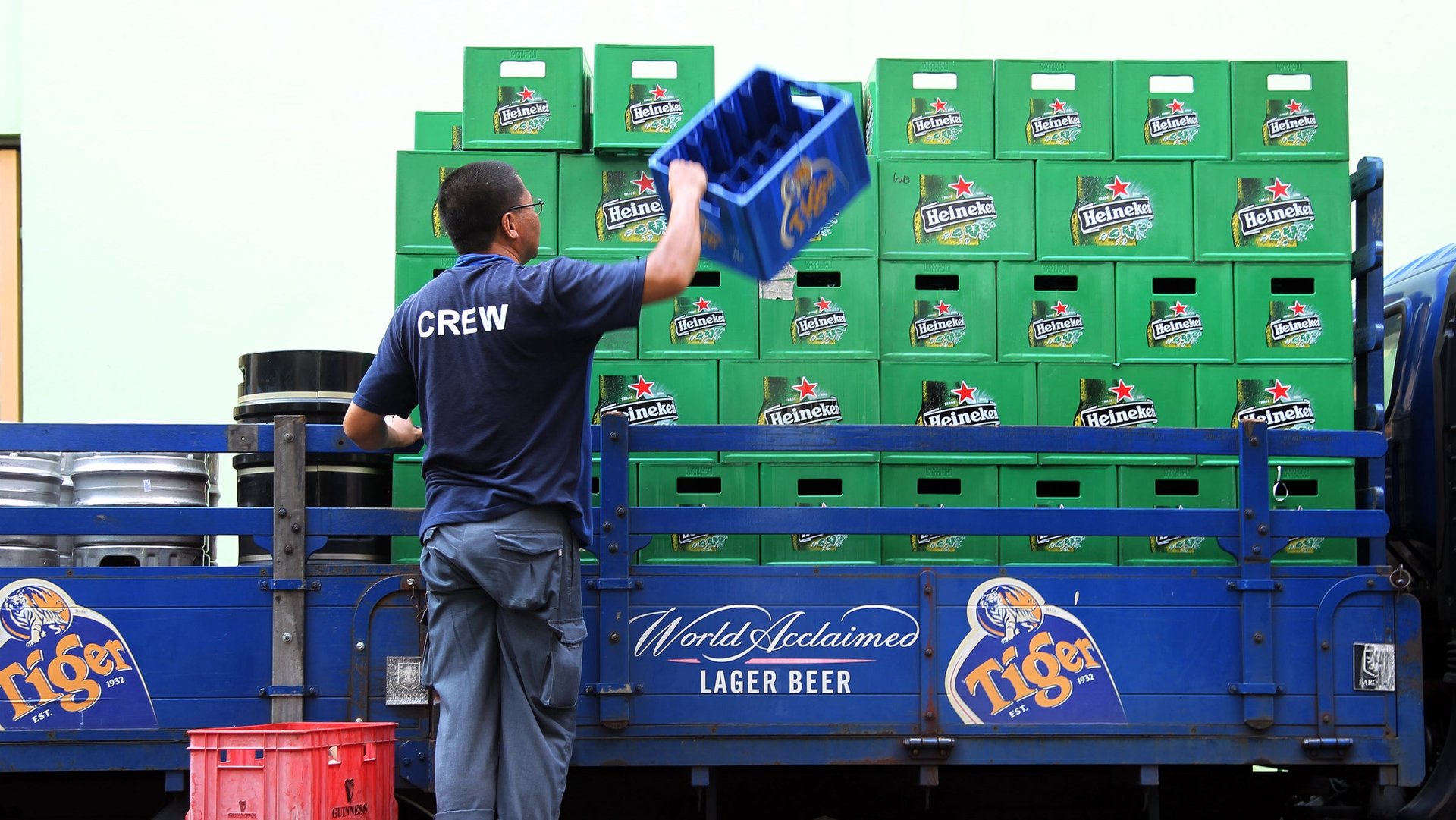Heineken owes its growth to Mexico, Nigeria, Tiger Beer, and James Bond
Emerging markets kept Heineken afloat last year, as Europe cut back on consumption. The beer company saw revenue up 7.4% to €18.4 billion ($25 billion) in 2012, beating analyst estimates.


Emerging markets kept Heineken afloat last year, as Europe cut back on consumption. The beer company saw revenue up 7.4% to €18.4 billion ($25 billion) in 2012, beating analyst estimates.
For a premium brewer whose biggest market is austerity-crunched Europe, this is impressive. In six words, the major reasons for Heineken’s growth are: Mexico, Nigeria, Tiger and Bond, James Bond.
In general, a strong emerging-market portfolio is increasingly a must-have for booze and brews companies, as we discussed in our latest Diageo coverage. In Heineken’s case, for instance, Mexicans bought 4.2% more beer by volume, while Nigeria slugged 3.6% more suds than last year—volume trends that helped boost profitability in those regions.
With 6.2% volume growth, Asia proved to be Heineken’s fastest-growing region last year. Heineken’s increased stake in the company that owns Tiger, a popular Singaporean premium brew, was responsible for a lot of that. In particular, the company highlighted strong growth in Indonesia and Vietnam. The company recently took full control of the company that makes Tiger. In addition, volume in China was up 27% last year, on the back of Tiger and Heineken sales.
Meanwhile, the company attributed a 5.3% sales increase in Heineken’s eponymous brand to its partnership with the James Bond Skyfall film. This was particularly true in the US, though the success of Heineken’s Mexican beer portfolio, namely Dos Equis Lager and Tecate Light, also nudged up American sales.
Europeans continue to pinch euros on pints. Volume in western Europe fell 2% from 2011. Still, that’s not that bad given that Heineken is the biggest or second-biggest brewer in many of the hardest-hit European countries. In Spain, where Heinken is the second-biggest brewer, the withering of cafe culture as a result of austerity should continue to weaken sales there. Heineken is also one of the leading brewers in Greece, which is proving predictably weak. This year’s European outlook looks little better, said CEO Jean-Francois Van Boxmeer in the earnings call.
In general, the company’s fortunes are increasingly reliant on emerging-market performance—making acquisition of top local brewers increasingly critical. For instance, China’s market still highly fragmented—among other factors, a result of its backward transport systems—and Heinken will need a local brand to compete outside of the premium segment, which both Tiger and Heinken occupy. However, as the Wall Street Journal points out, the leading local players have already been snapped up (paywall), making competition fiercer than ever.
Otherwise, the brewer’s solid year also owes some thanks to currency movements. Appreciation of the pound, the Mexican peso and the Nigerian naira bumped earnings up by €63 million last year. The company’s CEO said he wasn’t worried about “big changes” in the euro.